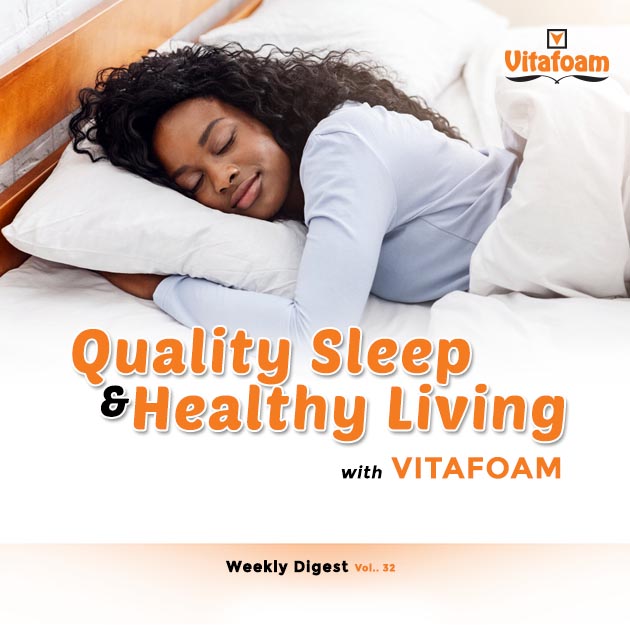Uncategorized
How to maintain the body’s internal clock to ensure quality sleep.
One would wonder, which one is the body’s internal clock again? Probably because we are familiar with the different clocks on the walls, tables, wrists, cars and devices. And easily, a clock has always been known to be a mechanical or electrical device for measuring time, usually indicating hours, minutes and sometimes seconds by continuously moving hands on a round dial or by displaying continuously counted figures. It guides us to gauge accurately the different parts of the day and night. This is in addition to the assessment we can gather naturally from observing the sunrise and sunset. Literally, the familiar clock tells us this is the early, mid or late part of the day or night. It also tells us it is the time to do something or for something to happen. Interestingly, it’s been found that the human body has its internal clocks which are a set of biological clocks located in the brain. Similar to the physical clocks in our environment, the body’s internal clocks dictate to the human body when some bodily functions or processes should commence or stop for optimal outcomes. Some identified parts of the internal clocks are 24-hour cycles with ‘around-a-day’ regular patterns. They work by helping to make sure that the body’s processes especially the release of body chemicals are optimized at various points during a 24-hour period. And one of the most important and well-known 24-hour cycles is the sleep-wake cycle and it is directly influenced by environmental signals such as light, exercise, social activity and temperature. But light is a critical signal with the most powerful influence on the biological clock, which is why the clock is tied to the day-night cycle.
During the day, light exposure causes the internal clock to send signals that generate alertness that keeps us awake and active. As night falls, the same clock initiates the production of a sleep-inducing brain chemical, melatonin, which switches on the sleep mode, and then keeps transmitting signals that help us stay inactive and asleep through the night. It is exciting how resourceful this control by the clock is, how the body is naturally compelled to shut down activities (with the main activity being movement around the environment) over the night, a period when ordinarily there is no light to see objects in our environment to safely move around. In this way, the 24-hour cycles of the internal clock align sleep and wakefulness with day and night to create a stable cycle of compelling restorative rest to recoup energy that enables increased daytime activity.
A faulty internal clock with a disturbed sleep-wake 24-hour cycle can give rise to serious sleep problems with shallower, fragmented, and lower-quality sleep. Without the proper signalling from the body’s internal clock, a person can have difficulty falling asleep, wake up more often or be unable to stay asleep till the morning. How can one ensure that one’s internal clock is not faulty, and if it’s faulty be repaired, to tap from the expected good sleep? While it is impossible to fully control the internal 24-hour cycle clock, there are healthy sleep tips for better 24-hour sleep-wake cycles. Firstly, seek out the sun for exposure to light, especially early in the day. Exposure to light helps reinforce the strongest signal for the clock. Secondly, as much as you can, follow a consistent sleep schedule because varying your bedtime or morning wake-up time can hinder your body’s adjustment to a stable cycle. Thirdly, get daily safe exercise during the day. It supports your clock and helps make it easier to fall asleep and stay asleep at night. Furthermore, avoid chemical and physical stimulants like caffeine and artificial light exposure at night which can throw off the natural balance between sleep and wakefulness. Let me also emphasize that you should keep naps short and early in the afternoon because late and long naps can push back your bedtime and throw your sleep-wake cycle off schedule. Lastly, make the bedroom conducive to sleep by keeping it cool, quiet, smelling nice and sleeping on a supportive comfortable sleeping surface. Please, invest in your sleep by investing in a quality mattress, pillows and bedding.

Let us remember that when you sleep, where you sleep and how you sleep affect your mental health, physical well-being and living a healthy life. We all need quality sleep to be set for productivity in our endeavours.
Do you need further information on the above subject? Are you looking for ways to maintain quality sleep for general well-being and healthy living? Remember, a doctor is an appropriate person to offer relevant advice for the maintenance of quality sleep and solution to sleep difficulties. Do you want to contact the Orthopaedic Sleep Consultant, Dr Charles Uzodimma, kindly send your request to sleepinfo@vitafoam.com.ng OR Whatsapp 08129982143.
Vitafoam Nigeria Plc is the first foam manufacturing company in Nigeria to partner with a sleep expert to educate Nigerians on quality sleep for healthy living. The proudly Nigerian company is truly passionate about sleep and general well-being, and continues to consistently provide Nigerians with quality products that offer great comfort.
To learn more about Vitafoam, please visit www.vitafoamng.com
